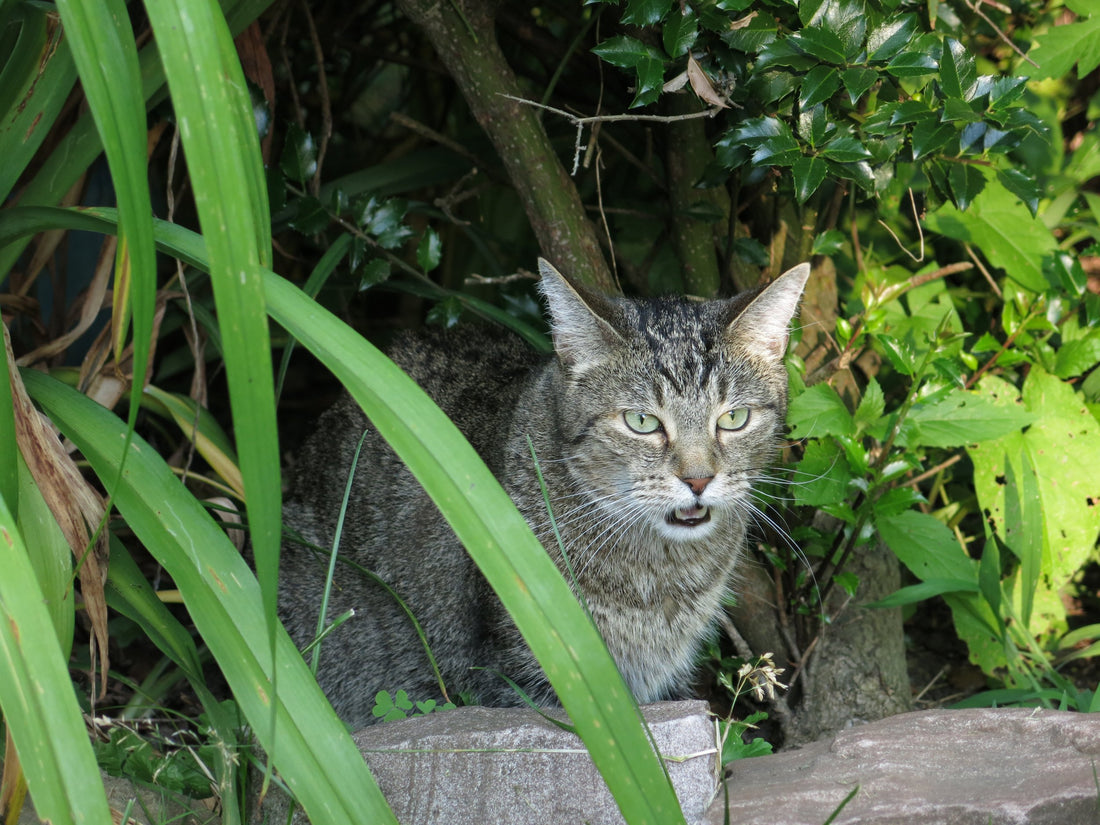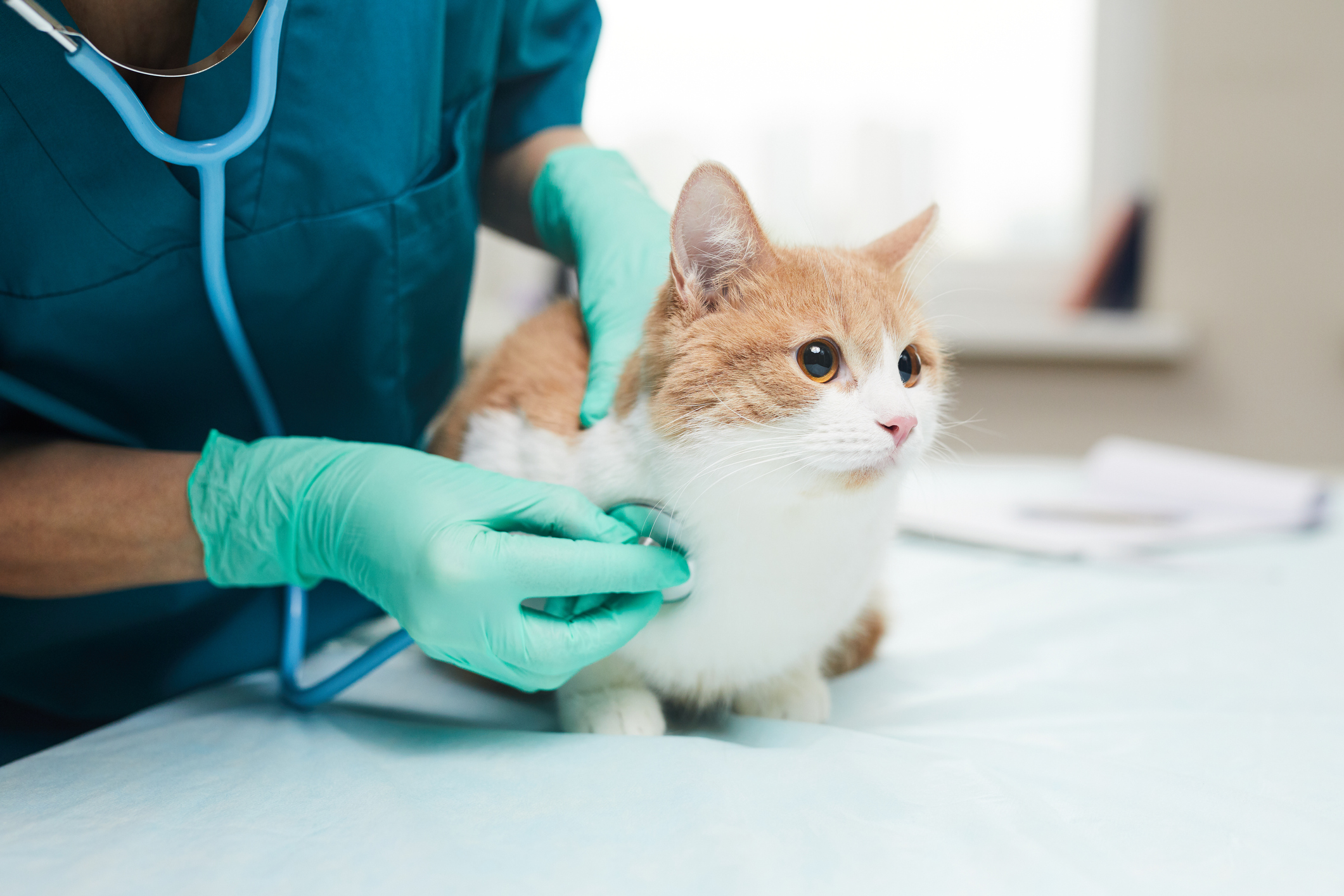
7 Signs Your Cat Can't Breathe Properly
A great number of things can make it hard for your cat to breathe. From everyday troubles like allergies and asthma to illnesses like pneumonia to serious conditions like tumors or fluid buildup, respiratory problems can affect your feline friend’s comfort and health. To get them the care they need, pet owners need to be mindful of the symptoms that respiratory distress create.
In the early stages of respiratory problems, some signs of difficult breathing, or dyspnea, are harder to spot than others. What might seem like a funny noise your cat makes could actually be a warning sign of illness. Because untreated respiratory distress could worsen rapidly and become fatal, it’s absolutely critical that you look out for these seven warning signs and get your cat veterinary treatment right away.
- Rapid breathing: Rapid breathing in cats (also called tachypnea) is common after physical exertion or playtime. However, if your cat is resting or has only begun exercise when they begin to breathe rapidly, something more serious might be going on. Rapid breathing could be due to a range of breathing problems, such as low blood cell count (anemia), asthma or fluid in the lungs or chest.
- Open-mouth breathing or panting: Cats generally don’t pant like dogs do, with their mouths open and their tongues out. If your cat starts to pant or take shallow breaths with their mouth open, it could be caused by hot weather, stress or exercise. However, panting that doesn’t go away or appear related to an environmental condition could be linked to respiratory infections, asthma or heartworm.
- Noisy breathing: As a general rule, cats should not make noise when they breathe. If your cat produces sound when they are awake and breathing, a breathing problem might be the cause. Wheezing sounds might be a result of respiratory inflammation caused by asthma, while rattling or crackling sounds might be caused by infections deep in the lungs, such as pneumonia.
- Snoring: Snoring is one sign of breathing trouble that might go unnoticed by pet owners. Some snoring is perfectly normal in cats, especially if they are sleeping in a strange position or have always snored. But sudden onsets of snoring or other noises during your cat’s slumber might be tied to upper respiratory infections, airway blockages like tumors or polyps or nasal inflammation.
- Coughing while breathing: Neither inhalation nor exhalation should cause your cat to cough or gag. If your cat is coughing repeatedly when they breathe, it’s likely a sign of a respiratory problem. Common underlying causes of coughing while breathing include lung infections, heartworm and asthma.
- Extended neck: Cats who are having trouble catching their breath might assume an odd posture in an attempt to get a deeper, more stable breath. Often, cats in respiratory distress will stand with their elbows angled away from the body to help open up the lungs. They might also extend their neck and lower their head to get a deeper breath. Many breathing ailments of differing severities can lead a cat to enter this posture, so you should take action right away.
- Blue gums: If your cat appears to be having trouble breathing, check their gums. If they have a blue or purple tint instead of the usual healthy pink, they are likely not getting enough oxygen and are in severe respiratory distress. Cats with blue gums should be rushed to an emergency vet immediately because they are at risk of collapse or death.

Unfortunately, there is no easy way to tell why your cat is experiencing breathing trouble until they are diagnosed by a professional. Any signs of labored or shallow breathing warrant an immediate trip to the vet, since you cannot be sure of the severity of their condition.
At the vet, your cat will need to undergo numerous tests, including a physical exam, chest X-ray and blood test. Make sure you explain when the breathing trouble began, what your cat was doing before it started and if they have a history of health problems. This information should help your vet get to the root of your cat’s ailment.
The treatment and prognosis for breathing problems ultimately depend on the issue at hand. Respiratory infections can usually be cleared up with antibiotics and rest, but more serious conditions like cancerous tumors might not be curable. For chronic conditions, your vet may provide at-home treatment options and teach you the signs to look for to ensure your cat stabilizes without veterinary intervention.
Regardless of the cause, early treatment will almost always result in a faster recovery, so your kitty can breathe easily once again.


